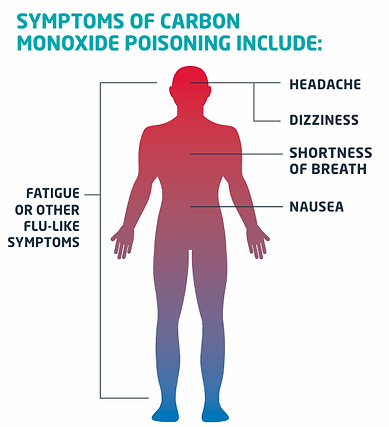
Safety Information
At McMahon Oil, your safety is our top priority.
What to do if you suspect a gas leak
A propane gas leak is an emergency. It can result in fire and explosion. Be prepared to respond.
GET AWAY IMMEDIATELY
Get everyone out of the building or area where you suspect a gas leak.
AVOID CREATING SPARKS
As you leave, avoid igniting the leaking gas. Some electrical devices and appliances can create sparks when manipulated.
-
DO NOT turn any light switches on or off.
-
Do not interact with any appliances, outlets, or landline phones.
-
No smoking, vaping, or open flames.
STAY AWAY AND REPORT THE LEAK
Once safely away, call McMahon Oil, 911, or the fire department. Stay away from the suspected gas leak until your propane retailer, emergency responder, or qualified professional determines that it is safe to return.
Turn off gas at the tank(s), unless you suspect there is a leak at the tank(s). To close the valve, turn it to the right (clockwise).
Before using any propane appliances again, have your entire propane system checked by your propane retailer or a qualified professional to make sure there are no leaks.
Indicators of a gas leak
PROPANE ODOR
A unique odor is added to propane to help alert people to a leak. Make sure everyone in your household knows what propane odor smells like (think: rotten eggs or a skunk's spray). If you do not know what propane smells like, ask your propane retailer for a sniff of the gas or additional information.
If you smell a bad odor and are not sure of the source, it may be a gas leak. Take action!
PROPANE GAS DETECTOR ALARM
Propane gas detectors can identify leaks even when propane is not smelled.
SOUND OF HISSING GAS
A hissing sound may indicate that gas is escaping from a component of your propane system or appliance.
UNUSUAL USAGE
If you are using more gas than you expect, there may be a leak.
You might not smell a gas leak if...
The propane odor does not get to your nose.
-
The propane odor may be present in an area where there are no people, such as a basement, attic, crawl space, or unoccupied room.
-
Because propane is heavier than air, it may settle near the floor.
-
Airflow may move or disperse the propane odor.
-OR-
Your ability to notice the odor is reduced. Reasons may include:
-
A cold, allergies, sinus congestion, or other medical condition.
-
Tobacco, alcohol, or drug use.
-
Being older.
-
Being asleep.
-
“Odor fatigue.” This could occur when the propane odor is present for a period of time and your nose “gets tired” and you no longer smell it.
-
The presence of other strong odors, such as tobacco smoke, cooking odors, or musty or damp smells, masking propane odor.
-OR-
Propane has lost its odor.
The odor that is added to propane can sometimes be absorbed by substances such as soil, water, or rust, making it more difficult to smell (“odor loss”).
If your gas runs out or is shut off
Contact McMahon Oil as soon as possible. We will check your propane system for leaks and ensure it is turned on safely. Never turn the gas on at the propane tank yourself.
Carbon Monoxide
Carbon Monoxide can be deadly. Be prepared to respond.
WHAT IS CARBON MONOXIDE (CO)?
Carbon monoxide is a poisonous gas that is colorless, odorless, and tasteless. High levels of carbon monoxide can cause brain damage or death. Young children, the elderly, people with heart disease, and those under the influence of alcohol, drugs, or medication are particularly susceptible to carbon monoxide poisoning.
WHERE DO UNSAFE LEVELS OF CARBON MONOXIDE COME FROM?
Unsafe levels of carbon monoxide can be generated by appliances that are defective or improperly installed, operated, or maintained, or have air intakes blocked. Carbon monoxide can also enter a home if an appliance venting system or chimney becomes blocked (for example, by a bird’s nest).
IF YOU SUSPECT CARBON MONOXIDE IS PRESENT
LEAVE IMMEDIATELY
Everyone should get out of the building and away from where carbon monoxide is suspected.
CALL 911 OR THE FIRE DEPARTMENT
Once safely away, call 911 or the fire department to report the presence of carbon monoxide.
STAY AWAY
Stay away from the suspected carbon monoxide until an emergency responder or other qualified professional tells you it is safe to return.
Indicators That Unsafe Levels of Carbon Monoxide May Be Present
CARBON MONOXIDE DETECTOR ALARM
Carbon monoxide detectors sound an alarm when they
sense excessive levels of carbon monoxide in the air.
-OR-
EXPERIENCING PHYSICAL SYMPTOMS
Exposure to high levels of carbon monoxide can cause symptoms like:
-
Fatigue
-
Nausea
-
Dizziness
-
Headache
-
Shortness of breath
-
Other flu-like symptoms
-OR-
IMPROPER APPLIANCE OPERATION
Unsafe levels of carbon monoxide can be created when fuels are not burning properly or appliances are malfunctioning. Signs that this might be happening include:
-
Soot, especially on appliances and vents
-
Unfamiliar or burning odor
-
Increased moisture inside windows

Additional Safety Resources
The Propane Education & Research Council is the national organization dedicated to educating consumers and businesses about propane. They have a huge collection of resources on their website about propane safety and, as industry experts, we encourage you to visit their site!
